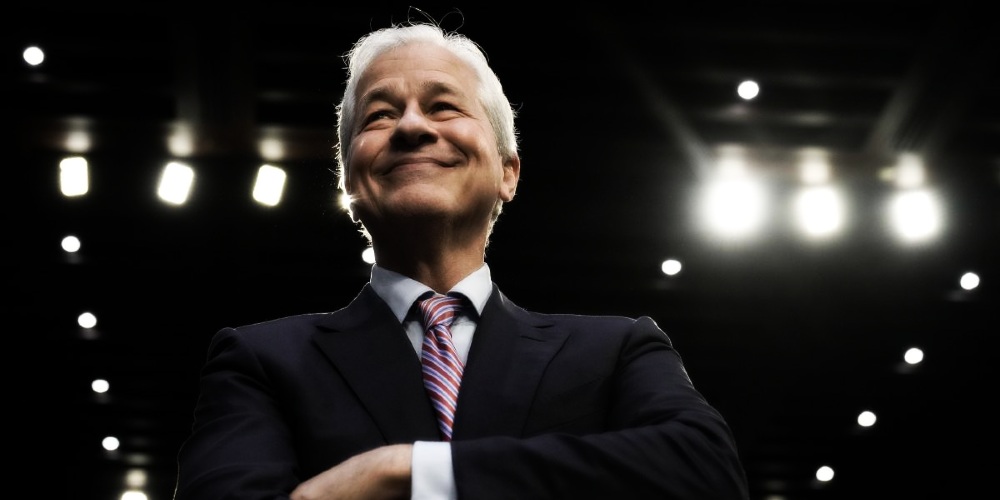-
The Importance of Prayer: How a Christian Gold Company Stands Out by Defending Americans’ Retirement
It’s the deposits. Bankers never used to worry about the money customers left in their banks. When deposited, the money was lent out while depositors could come and get their money anytime if it was a demand deposit. Thus, the depositor and the borrower had the use of the same money at the same time. Murray Rothbard called it fraud.
Now it’s 2023 and Scott Hildenbrand, the chief balance sheet strategist at Piper Sandler, tells Joe Weisenthal and Tracy Alloway on Bloomberg’s Odd Lots podcast,
And so if you had told me, Joe, or Tracy five years ago, you had me on here and you said, “There’s a bank and all they’re going to do is buy treasuries and all of their deposits are in checking accounts. And by the way, they’re going to fail,” I would’ve laughed at both of you. I wouldn’t have come back. I would have been like, “You all are crazy.”
Rothbard wasn’t so crazy after all.
Hildenbrand was on Odd Lots to explain how tough things are for small community banks. Jamie Dimon’s JPMorgan has all sorts of revenue streams, but the community bank has to take deposits, lend them out, and live on the difference in interest rates. Silicon Valley Bank was “not like the WAMU days or not It’s a Wonderful Life. It was three hours and $42 billion. That’s what happened.”
Hildenbrand made a point that’s never mentioned: banks don’t make money lending; banks make money because “they don’t pay at market rates on the deposit side.” Banks don’t typically pay anything on checking account deposits. That is where banks earn their spread. It didn’t matter because it used to be that bank customers were very loyal. Bankers could count on that checking account money staying in place. Not so much anymore. Money moves fast for two reasons according to Hildenbrand: technology and demographics.
Back in the day customers were very loyal but had very little trust. Today, “there’s a ton of trust. They’ll move money around on phones. They don’t even know the name of the bank they’re banking at,” Hildenbrand said. “They’ll move it so quickly. But there’s very little loyalty. And therein lies the difference in why we’re struggling with how to determine how to manage and hedge a balance sheet from a deposit perspective.”
Bankers didn’t realize the effects on deposits of technology, social media, and demographic changes from a liquidity perspective in a higher rate environment. A decade or two ago a community bank had almost half of its deposits in CDs. And, as Hildebrand says, “That gave banks time.” Now bankers won’t get that kind of time due to demographics.
Hildebrand interviews lots of young people for Piper Sandler who come to New York to learn about community banking. As smart as these young people are, he quipped, “I always have a question they can’t answer. Do you know what a CD is? And they’ve never heard of it, whether it was banking or music.” A certificate of deposit (CD) is a savings product that earns interest on a lump sum for a fixed period of time. The money must remain untouched for the entirety of their term or penalties or lost interest may apply. As an incentive for lost liquidity, CDs usually have higher interest rates than savings accounts.
Nowadays, “people want CD rates with money market flexibility and operational flexibility,” Hildebrand told Alloway and Weisenthal. “We have no contractual liabilities on most bank balance sheets anymore.”
Since the spring spate of regional bank failures, only one bank has failed—the $139 million Heartland Tri-State Bank in Elkhart, Kansas. But more failures and consolidations are coming. Hildebrand said half the banks in the country are trading at less than book value (assets-liabilities/shares). That means investors don’t trust the loan and investment values on bank balance sheets. He believes from the four thousand banks the United States has now, the number of banks will shrink to two hundred over the next ten to fifteen years.
Rothbard wrote in Making Economic Sense, “The banking system, in short, is a house of cards.” The house of fraud will have fewer cards going forward.
Sound off about this article on our Economic Collapse Substack.
About the Author
Douglas French is President Emeritus of the Mises Institute, author of Early Speculative Bubbles & Increases in the Money Supply, and author of Walk Away: The Rise and Fall of the Home-Ownership Myth. He received his master’s degree in economics from UNLV, studying under both Professor Murray Rothbard and Professor Hans-Hermann Hoppe. Article cross-posted from Mises.



